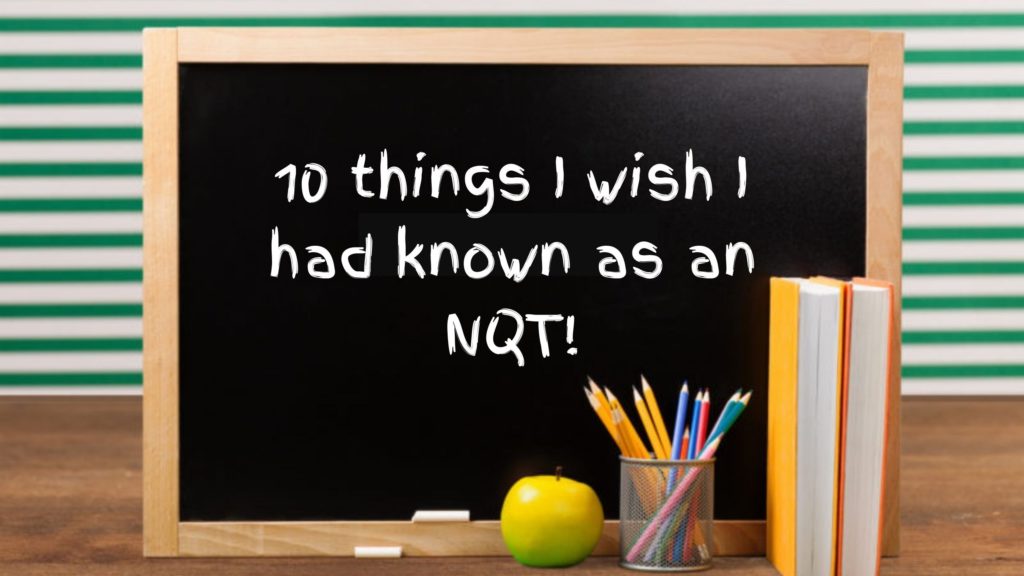Improving the classroom with a broad and balanced curriculum

Whether you are an early years practitioner or a primary/secondary school teacher, your influence is paramount on a young person’s life, as you help shape their view of the world and support then in making the right choices for themselves and their families.
In my second series of a broad and balanced curriculum, here are other ways in which you can deliver a broad and balanced curriculum as an educator…
Social Skills
Explain the importance of social skills and eloquence. Being able to use the right “lingo” and communicate in the right environment is key! It is these skills that will aid them when they go for interviews or want to get their voices and opinions heard. They will also need these qualities when navigating relationships – both in their work and personal life.
Share your own experiences when you have had to take on feedback and adapted your social skills to ensure you had the best outcome for yourself! Teach them simple acts like how to shake hands – (where appropriate), and the impact it can have. It is surprising how many young people are unaware of how their attire, social skills and behaviour can help influence life changing decisions.
“Inform them about what we humans are currently doing and how it can impact the future.”
Understanding the environment
Teach your pupils about the environment and sustainability. Inform them about what we humans are currently doing and how it can impact the future. You may be an English teacher and not a geography teacher- but your influence is key. This is their future!
By helping them understand the impact of waste and how they can recycle effectively and manage their carbon footprint and also use energy wisely – we are creating guardians of Earth. It also enables them to have ownership and take action for themselves. By doing this, they can hopefully influence their families in helping save the planet not just for themselves but for everyone.
Delivering the diverse curriculum!
Talk to young people about inspirational events and people. This is regardless of what kind of teacher you are. It is these conversations that have a lasting influence and dig deep into their minds and shape their philosophies.
Ordinary heroes like Mary Manning in Ireland helped challenge and raise concerns about the Apartheid movement in South Africa 1984. By refusing to check out a customer’s South African fruit, she and her union kick started the power shops have on influencing political change in South Africa.
In this celebrity embedded culture, children should realise that ordinary people can make a difference! They need to know that they too can make changes and help improve and turn the world into a better and happier place.
Teach children about events and people from their own heritage as well as things that help them understand and define what it means to be British and to be proud of it. Get them to share their own life experiences. In the past, teachers use to dedicate time for “Show and Tell”. However, due to curriculum constraints, these have died a death. Yet all children loved these sessions as it was a time where they could share and celebrate a part of themselves with pride.
As teachers, our job is to always give a balanced view. Even if a child makes a contentious view or comment, address it and give them a balanced opinion. We don’t know the influences they may have beyond the classroom – but we can hopefully help shape them so that they do have more positive thoughts and views.

“Famous people like the director Steven Spielberg, started filming as a child and used his passion to develop his career.”
Being Financially Savvy!
Many children leave school without knowing how to be financially confident. Teach them skills especially in the 4 operations (+, -, x and ÷) and create opportunities where they can learn how to use money effectively. Teach them the importance of making their “pound work hard for their money” and having a good credit history. Such lessons need to be taught even as early as nursery and reception.
Talk to them about the dangers of credit cards, loan sharks and the effects of inflation, taxes, pensions. Teach them how to use supermarket and online deals effectively. These tips are often shared at home- influencing a whole family on how to budget, shop and save effectively.
Pupils tend to learn such knowledge – only if they take economics or business studies. In fact, children need to have such knowledge and should also know that jobs can be lost when shops like Mothercare close down and that what is happening to the economy affects all of us. Yes, students may need to learn trigonometry and vectors to pass their GCSEs but when is it really used? It is only used if you have careers linked to it. It is far more important that they develop their financial skills so they can survive in the real world.
One day, they will hopefully hold down jobs and by teaching them to be “financially savvy” they can hopefully have a future where they are solvent (bar the fact that in this day and age, many will also be paying off student loans!).
Planning for the future – Making Daring Ambitions
Talk to them about their future- even if you are a reception teacher. Let them have big dreams and show them the pathways to achieve them. Talk to them about your career choices and your pathway. Sometimes schools bring in speakers but don’t forget you are a resource yourself.
My parents were immigrants and did not go to university and my Mum only spoke very simple English. It is something I share with students so that they know that going to university and having your chosen career is achievable.
Famous people like the director Steven Spielberg, started filming as a child and used his passion to develop his career. Every child is entitled to have dreams and it is our job to help develop their passions and help realise their dreams. Furthermore, we need be teaching them to improve continuously and be pragmatic about their choices through constructive feedback.
“Talk to children about life, death fear, love, loss, hurt, happiness, contentment and friendships…”
Develop their skills for Networking!
Model this by inviting people you know and creating partnerships with organizations and schools with different backgrounds (with the appropriate safeguarding checks) who will have positive influences on your pupils and will make them think deeper and harder.
Let them mix with entrepreneurs, scientists, lawyers, educators, emergency service personnel, plumbers etc. It will give them a more informed view of the wider workforce and influence their own career choices. Furthermore, if you are a person reading this and are not an educator- share your experiences by linking up with schools and colleges. As long as it is appropriate and safe, forward thinking headteachers, principals and senior leaders will use your resources to enrich children’s experiences.
Children need to know that they alone can’t achieve their dreams. Pupils from public schools are already at an advantage as they are shown the importance of networking from an early age and have sophisticated alumni networks.
They are also taught to be confident in achieving their dreams and are introduced to networks that support their pathway. If you are a teacher from a state school or where there is a high percentage of children from challenging and vulnerable circumstances, it is even more essential to develop these tools no matter what kind of teacher you are. These are the pupils who don’t often have such rich experiences and connections and they will need you to facilitate this.

“…teach them how to be resilient and persistent and how to develop their passions and curiosity.”
Teach them about Well-being and Life skills
Talk to children about looking after themselves and about mindfulness and being healthy. The importance of healthy lifestyles and exercise should not just be left to PE lessons or the PE department. We don’t know what truly goes on in their lives or the challenges they have already had to face before the register has been taken.
While many of us look forward to the holidays, some children whether they are affluent or poor, may face them with dread. According to the Mental Health Foundation, 50% of mental health problems are established by the age of 14 and 75% by age 24. By teaching children ways to relax (without having to spend lots of money) is essential.
Similarly, teach them how to be resilient and persistent and how to develop their passions and curiosity. Show them how to see the bigger picture while developing an eye for detail and also how to be discerning when celebrating successes and reflecting on failures.
Discuss how you have overcome adversity or situations where you know people have overcome hardship to achieve a positive outcome. Talk to children about life, death fear, love, loss, hurt, happiness, contentment and friendships and give concrete examples of what they can do to turn things around when things don’t go to plan. The footballer, Dele (formerly known as Dele Alli) is a good illustration of someone who has overcome obstacles and become a success.
Delivering a broad and balanced curriculum through osmosis is integral if you want to create happy, positive people who make great choices for themselves and others, no matter who they are and what background they come from.
As Sir Ridley Scott said in his acceptance speech of the BAFTA Fellowship in 2018, “It’s extraordinary what an enthusiastic teacher can do, drawing the student out, igniting independence, and encouraging a design of your own future, rather than waiting for something to happen. Teaching is the most important of all professions. Sort that out and social problems will get sorted out.”
Resources
- Article on Mary Manning – Dunnes Stores www.thejournal.ie/dunnes-stores-strike-8-3690382-Nov2017/
- Watch Sir Ridley Scott’s Acceptance for the BAFTA Fellowship 2018 https://www.youtube.com/watch?v=L0SZSB_5cO4







Responses